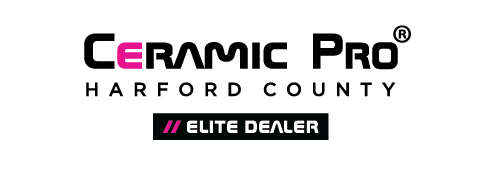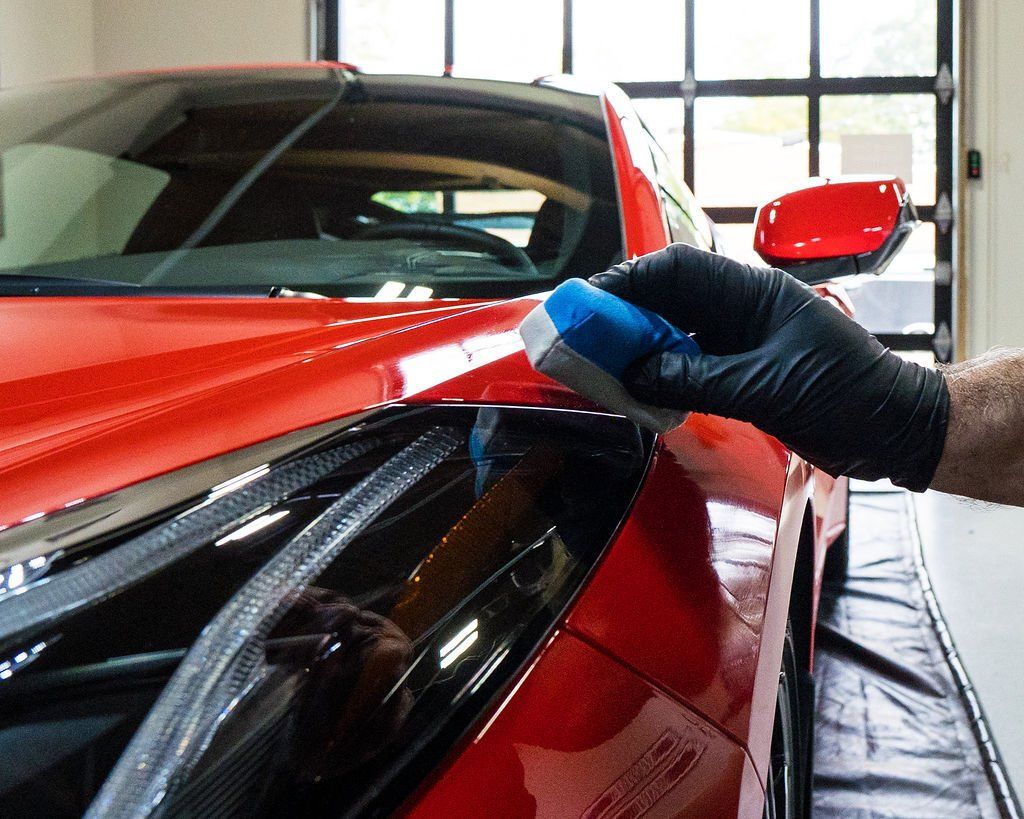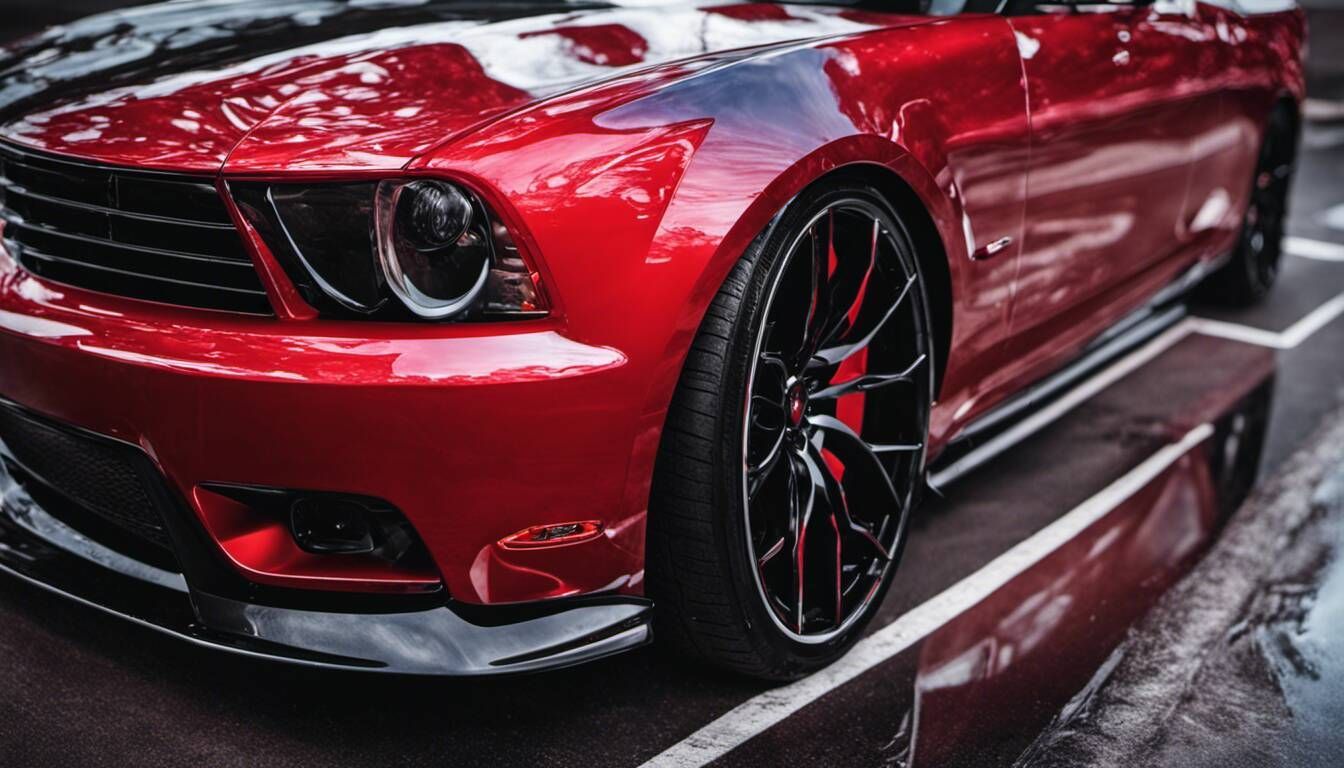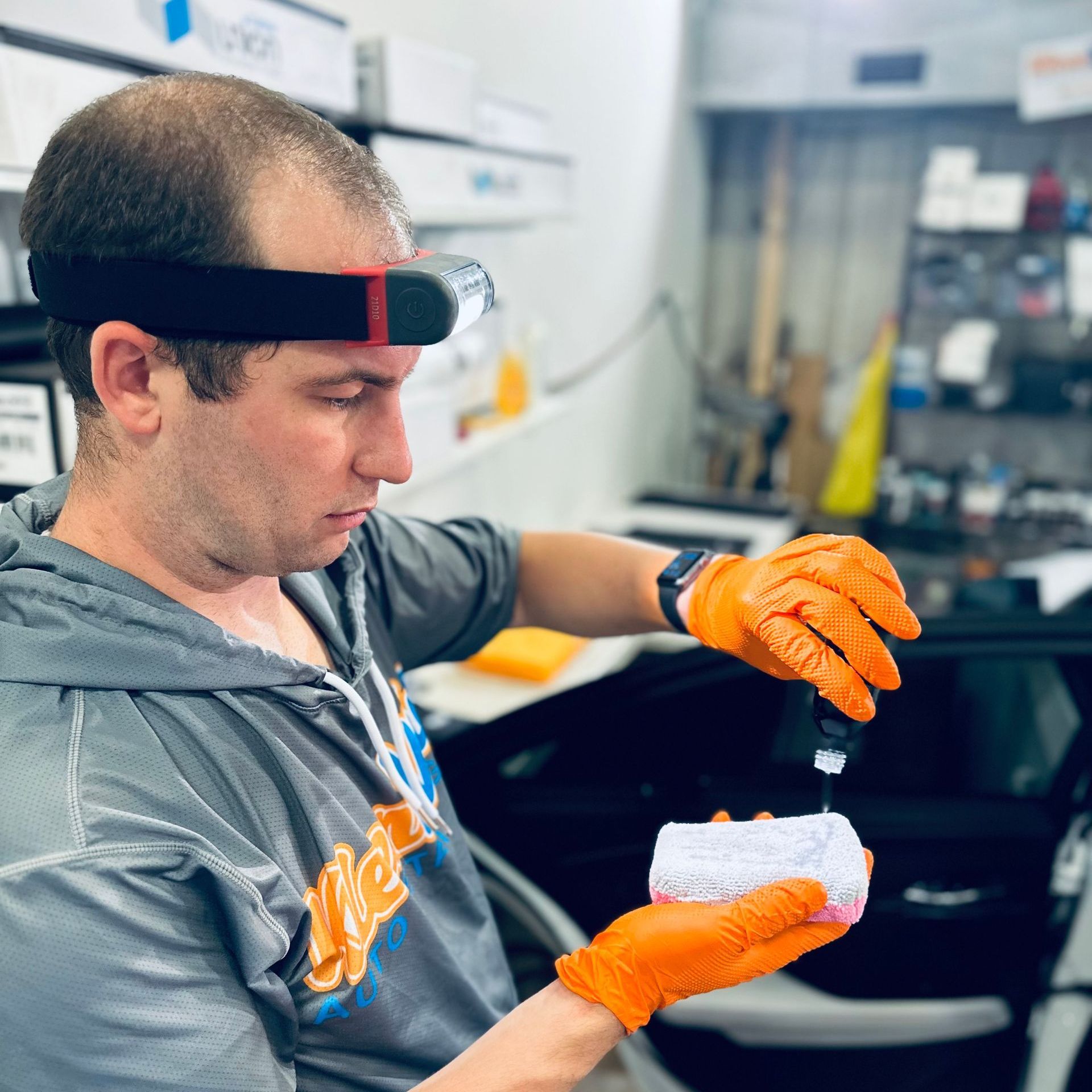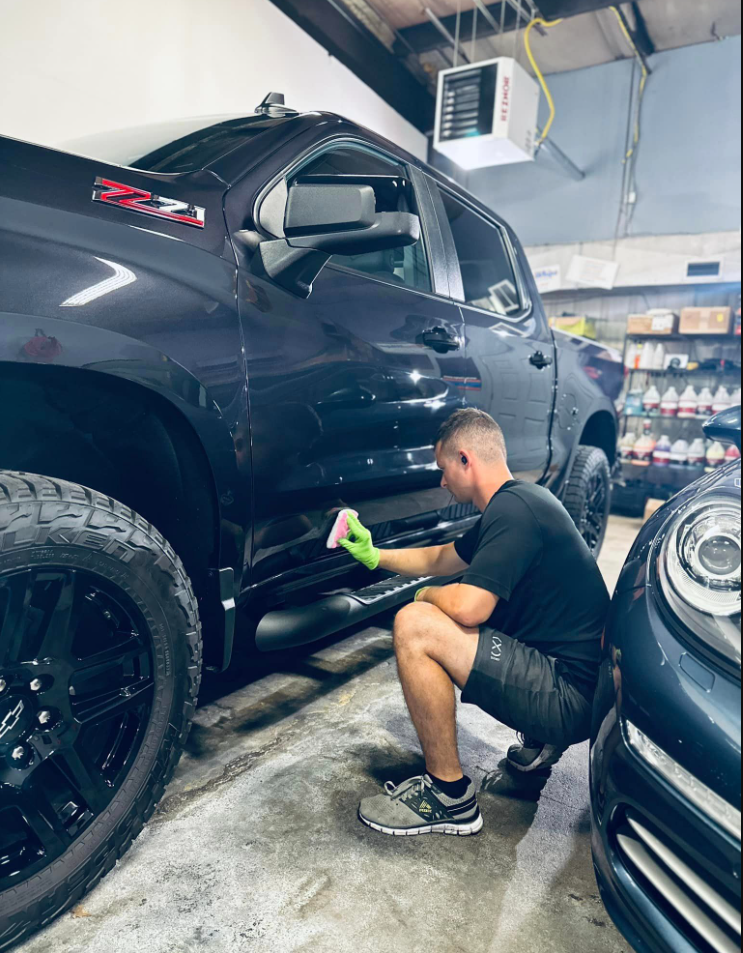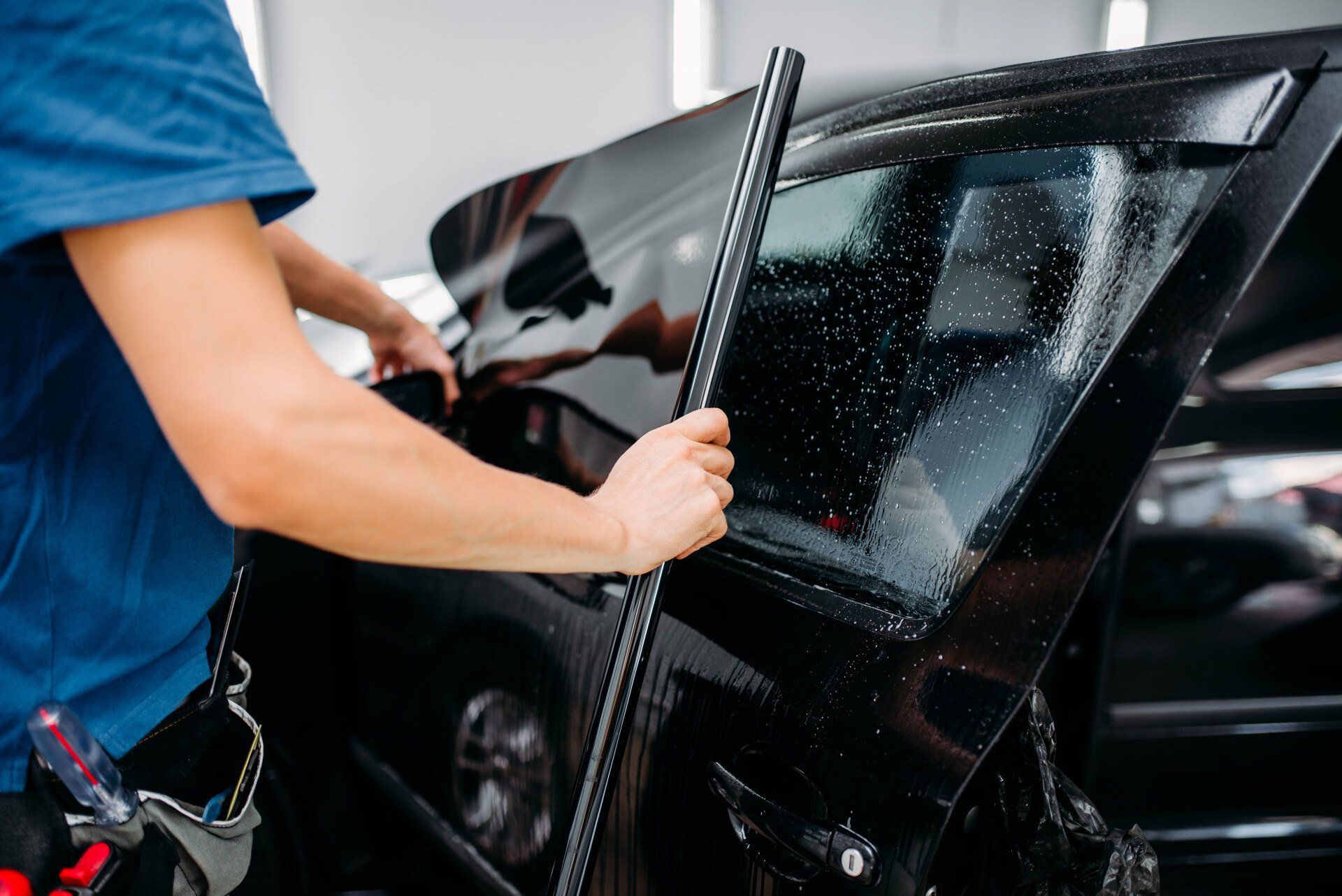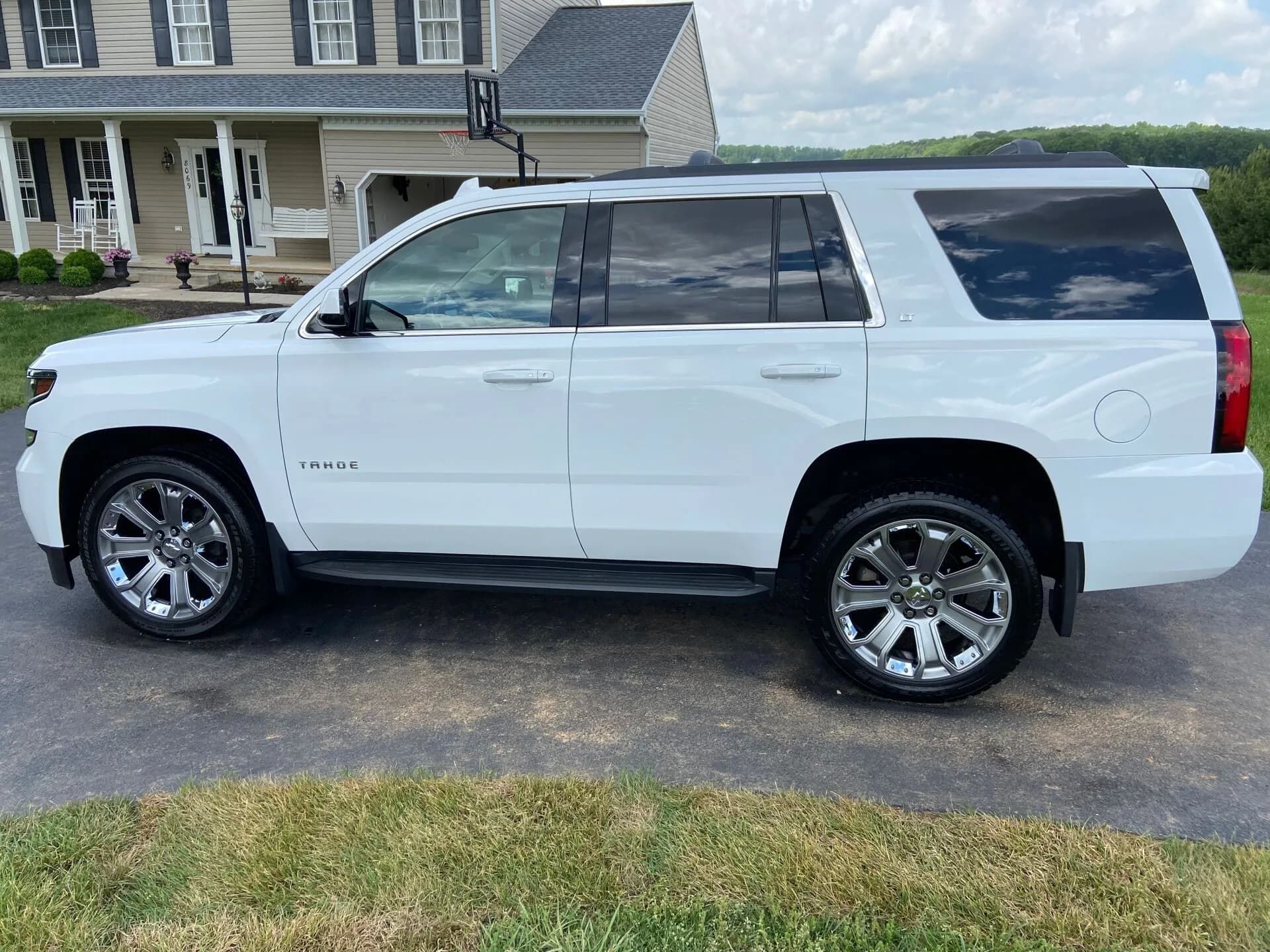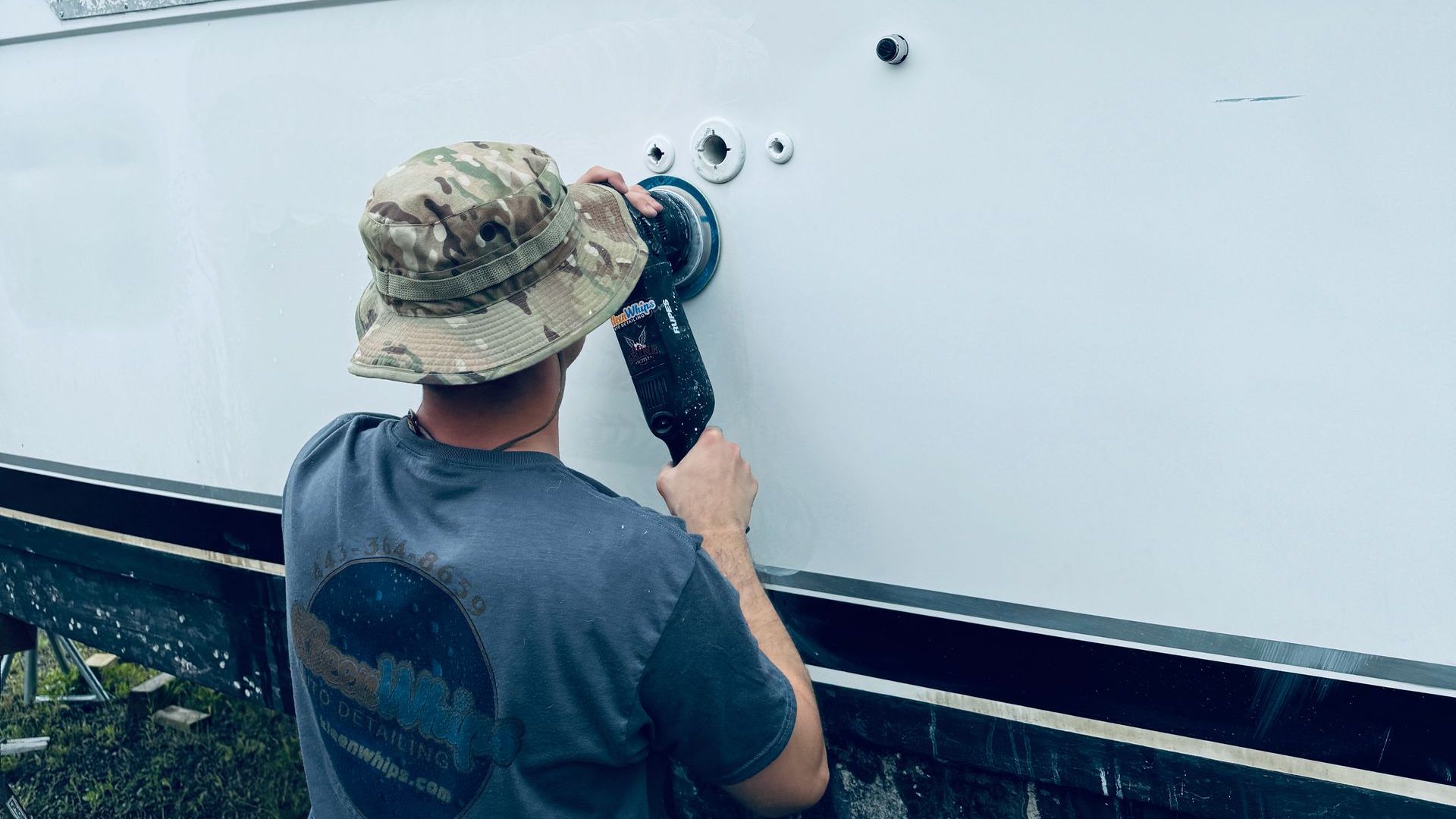Pros and Cons of DIY vs. Professional Ceramic Coating Installation
CALL (443) 364-8659
It is useful to know that both DIY and professional ceramic coating installations have their perks and downsides. A DIY job can save you money and let you learn a new skill, but it may not have the same quality result that experts provide. On the other hand, professional installation offers a flawless coat but might burn a hole in your pocket.
The main difference lies in the level of expertise and resources involved. While DIY kits provide cost-effectiveness, professional installation ensures superior durability, expertise in surface preparation, and specialized application techniques, ultimately delivering longer-lasting results. It is recommended to have a professional ceramic coating application!
The DIY Ceramic Coating Process Explained
If you're considering applying a ceramic coating to your car yourself, understanding the detailed process is essential. Let's break down the key steps involved in the DIY ceramic coating process to give you a clear understanding of what it takes to achieve that professional-level glossy finish.
Surface Preparation
Before applying the ceramic coating, thorough surface preparation is crucial. This involves more than just cleaning; it requires meticulous attention to detail. Begin with a thorough washing to remove dirt and grime, followed by using a clay bar to eliminate any embedded contaminants from the car's surface. Once the surface is impeccably clean, buffing the paint will ensure its smoothness and shine, creating an ideal canvas for the ceramic coating to bond with. Claying might seem like a simple step, but it's incredibly important. When you run your hand over your car's paint after a wash, it may still feel rough. This roughness can come from embedded contaminants that regular washing can't remove. Using a clay bar provides a gentle yet effective way to lift these contaminants away without causing any harm to your paintwork.
Application Technique
Once your car's surface is immaculately prepared, it's time to move on to the application stage. Application techniques play a vital role in achieving the desired results from the ceramic coating. It's not merely about slathering on the product; rather, techniques such as using crosshatch patterns and ensuring uniform thickness are essential for proper coverage and consistent protection across all surfaces of the vehicle. Crosshatch patterns may sound like something out of an art class, but they're equally important when it comes to applying ceramic coatings to your car. It involves overlapping your strokes at 90-degree angles during application. This method ensures that every inch of your vehicle's surface gets equal coverage, leaving no room for unprotected areas.
Curing Time
After meticulously applying the ceramic coating according to the specified instructions, allowing it to cure properly is non-negotiable. Curing time is crucial for the bonding process between the coating and the painted surface of your car. Exposure to moisture or harsh weather conditions during this period should be strictly avoided to ensure optimal bonding and performance of the ceramic coating. Think of curing time like letting cake batter rest before baking; it needs that time for everything to set just right. In the same way, giving your ceramic coating sufficient time to cure ensures its durability and effectiveness in protecting your car's paintwork from environmental elements.
With these steps in mind, it's evident that while DIY ceramic coating offers cost savings and a sense of accomplishment, it demands careful attention to detail and precision in execution for superior results.
Professional Installation of Ceramic Coatings
When you opt for professional ceramic coating installation, you're not just paying for a service; you're investing in experience, expertise, and peace of mind. Unlike the DIY route, professional ceramic coating services come with a breadth of benefits that are often well worth the investment.
Experience and Expertise
Professional technicians are well-versed in the art and science of applying ceramic coatings. They have practical experience in delivering superior results and understand the nuances of different vehicle surfaces. These experts meticulously clean and prepare the vehicle's surface, ensuring that it's free from contaminants and imperfections, before applying several layers of ceramic coating. By employing specific techniques, such as paint correction and surface priming, they create an ideal foundation for the ceramic coating to adhere to. This level of care and attention to detail is often hard to replicate in a DIY setting, where achieving professional-grade results requires a deep understanding of surface preparation and application techniques.
Quality of Coating
One of the key advantages of professional ceramic coatings is the quality of the product itself. Professional-grade coatings often contain higher concentrations of active ingredients and advanced formulations designed to provide enhanced durability and longevity, offering exceptional protection against environmental elements, UV radiation, chemical contaminants, and everyday wear and tear. The specialized formulations used by professionals are engineered to deliver long-lasting results that surpass what may be achievable through standard off-the-shelf DIY kits. Professional-grade coatings are carefully curated to ensure consistent application across different sections of the vehicle.
Warranty
Another compelling aspect of professional installations is the assurance that comes with warranties. Unlike DIY ceramic coatings, which may lack formal guarantees, professional services often come with warranties against defects or premature failure. This added layer of protection further solidifies the value proposition of professional ceramic coating services, offering reassurance and confidence in the quality and longevity of the applied coating. With extensive knowledge, meticulous attention to detail, advanced formulations, and reliable warranties, it's clear that professional ceramic coating installations set a high standard for quality and durability that is difficult to replicate through DIY methods alone.
Making a Choice: DIY or Professional Installation
Choosing between DIY and professional installation hinges on several key factors.
Skills and Patience
Before making your final decision, consider your own skills and patience. Executing a DIY ceramic coating requires meticulous attention, an abundance of patience, and precise preparation to ensure that the product is applied correctly. The stakes are high when it comes to protecting your vehicle's paintwork, so investing time in proper surface preparation, adhering to application techniques like crosshatch patterns, and ensuring uniform thickness across different sections is crucial.
Time and Effort
Opting for professional installation means investing not just in the product itself but also in the expertise of skilled detailers who specialize in delivering superior results. Because professionals with experience and access to cutting-edge tools and techniques handle these tasks, you will save a lot of time and effort by making this decision. Professional installers can also provide valuable insights on proper maintenance, answering questions you may have about caring for your newly coated vehicle, thus adding value beyond the initial application.
Budget
When it comes to budgetary considerations, DIY ceramic coatings may initially seem cost-effective compared to professional services. However, achieving professional-level results often entails additional expenses for multiple kits, equipment, and extra materials for more than one vehicle or reapplication in the future. On the other hand, while there is an upfront cost associated with professional services, they offer superior application techniques, advanced formulations, and higher concentrations of active ingredients. When properly applied and maintained, professional coatings can last upwards of five to eight years. Consequently, the long-term benefits of professional installation may outweigh the initial investment. So, when it comes down to budgetary considerations, it's crucial to weigh the potential long-term expenses of DIY coatings against the quality and longevity offered by professional services.
Considering these essential factors will equip you with valuable insights that will guide your decision-making process concerning ceramic coating installations.
Factors Influencing Quality and Durability
When it comes to ceramic coatings, there's more to it than just applying the product to your car. The intricate details of surface preparation, application technique, and environmental factors play a vital role in determining the effectiveness and longevity of the coating.
Surface Preparation
Proper surface preparation is the foundation of a successful ceramic coating. This involves meticulous cleaning, claying, and buffing to ensure that the surface is free from contaminants and imperfections. Just like how a painter carefully primes a canvas before creating a masterpiece, the precision and thoroughness of the surface preparation greatly impact the adhesion and longevity of the coating. Think of it this way: Imagine trying to apply a band-aid to a dirty or wet area on your skin - it won't stick well or last long. Similarly, if contaminants or impurities are left on the surface of your car before applying the ceramic coating, it will not adhere properly and may affect its performance over time. Proper detailing ensures that the coating can adhere to the surface as intended, maximizing its durability and protective properties.
Application Technique
Applying ceramic coatings requires skill and attention to detail. The technique used during application, such as using crosshatch patterns to ensure uniform coverage, plays a crucial role in the overall effectiveness of the coating. It's akin to painting a wall - a haphazard approach will result in an uneven finish. Proper technique ensures that the coating is applied evenly across all sections of the vehicle, preventing inconsistencies in thickness that could impact its protective capabilities. Applicants should pay close attention to avoid streaks or gaps that can compromise uniformity.
Environmental Factors
Once applied, environmental elements like harsh weather conditions, frequent washing, and maintenance routines can directly impact the durability of the ceramic coating. Much like how exposure to extreme heat or cold can affect different materials, these factors can either prolong or reduce the effectiveness of the coating. For instance, exposure to direct sunlight for prolonged periods can potentially break down the protective properties of the coating over time. Frequent washing with harsh chemicals or improper washing techniques may also diminish its lifespan. Therefore, proper maintenance and care are essential to preserving the quality and durability of the ceramic coating.
By considering these important factors—surface preparation, application technique, and environmental conditions—you can make informed decisions that contribute to maximizing the performance and longevity of your ceramic coating investment.
Evaluating Costs: DIY vs. Professional
When considering the financial investment in ceramic coating for your vehicle, it's important to weigh the costs of both DIY application and professional services.
DIY Ceramic Coating Costs: The appeal of a DIY ceramic coating kit lies in its affordability, with prices ranging from $20 to $150. However, achieving professional-level results might require additional kits for larger vehicles or future reapplications. This means that even though the initial investment may seem low, multiple kits might be required, adding to the overall cost. It's essential to note that factoring in the cost of additional kits for larger vehicles or future recoating is crucial. It is also important to consider the cost of the tools used for a ceramic coating application that DIY enthusiasts need.
Professional Ceramic Coating Costs: On the other hand, professional ceramic coating services come with a substantial initial financial commitment. The average cost of professional installation can range from $500 to $3,000 depending on various factors such as vehicle size, condition, additional services requested, and regional pricing variations. Despite the steep initial cost, it's important to assess this expense against potential long-term benefits, including extended protection for your vehicle's paintwork against environmental contaminants and UV damage. Moreover, reputable professional installers often provide warranties to guarantee their work, offering added peace of mind for car owners. These warranties can range from a couple of years up to five or more, depending on the product used and installer qualifications.
When evaluating costs for ceramic coating, it's crucial to align each option with your specific needs and budget constraints. Both DIY and professional ceramic coatings offer distinct advantages and drawbacks that need careful consideration before making a decision.
Maintenance Tips for Ceramic-Coated Car
So, you've invested in a ceramic coating for your car, and now you want to ensure it stays pristine for as long as possible. Regular maintenance is key to preserving the protective benefits of the ceramic coating, and here are some crucial tips to help you do just that.
Regular Washing: Regular washing is essential to keep your ceramic-coated car looking its best. However, not just any washing will do. You'll want to use a pH-neutral car wash soap and adopt a gentle washing technique to preserve the coating. This means using the two-bucket method to minimize swirl marks and scratches on the surface. By gently hand-washing your vehicle using a microfiber wash mitt, you can effectively remove dirt, grime, and environmental pollutants without compromising the integrity of the ceramic coating.
Avoiding Abrasive Polishing: While it might be tempting to give your car that extra shine through abrasive polishing, this can actually be detrimental to the ceramic coating. Abrasive compounds or aggressive polishing techniques can compromise the integrity of the coating, leading to premature wear and diminished performance. It's important to remember that the ceramic coating is designed to protect your vehicle's paint from environmental damage, so avoiding abrasive polishing is crucial to maintaining its effectiveness.
Routine Inspection: Simply applying the ceramic coating isn't enough; routine inspection is an integral part of ensuring its longevity. Regularly inspecting the coated surface for any damages or irregularities allows you to address them promptly, preventing minor issues from escalating into more significant problems. Early detection of any issues with the coating enables timely corrective action, preserving its protective properties and extending its lifespan. An annual inspection can provide valuable insights into the condition of the coating, allowing you to address any potential issues before they worsen.
Kleen Whips Auto Detailing LLC: Top-Tier Ceramic Coating Experts in Bel Air, MD
Experience the pinnacle of automotive protection and shine with Kleen Whips Auto Detailing LLC, your
premier destination for top-tier ceramic coating expertise in Bel Air, MD. Our dedicated team is committed to safeguarding your vehicle's exterior with cutting-edge ceramic coating technology and meticulous attention to detail. Bid farewell to frequent waxing and polishing; our ceramic coating offers unparalleled durability and resistance against stains, UV damage, and environmental contaminants, ensuring your car maintains its showroom-worthy appearance for years to come. Don't settle for ordinary protection when you can entrust your vehicle to the experts at Kleen Whips Auto Detailing LLC. Schedule your ceramic coating service today and enjoy unparalleled protection and brilliance on the road! Call us at
(443) 364-8659!

